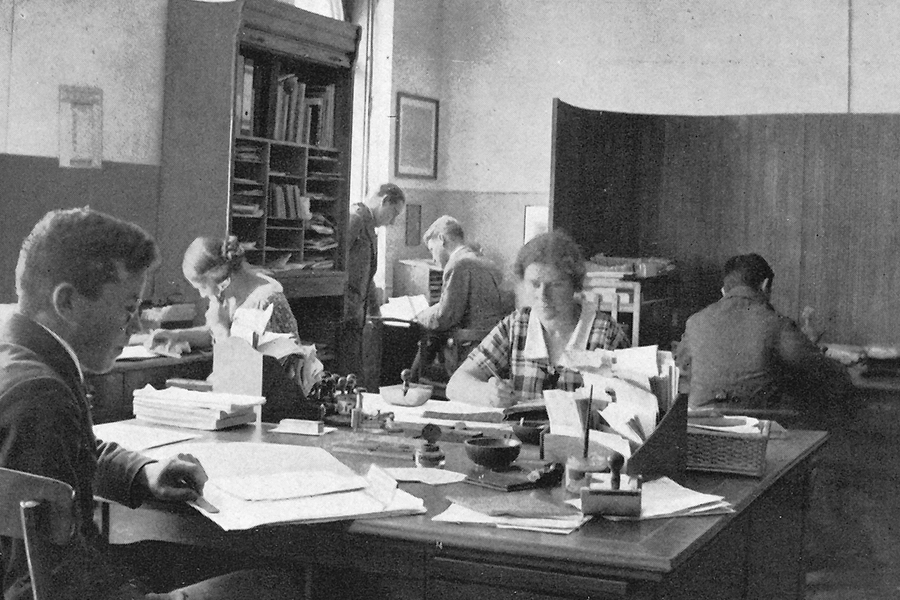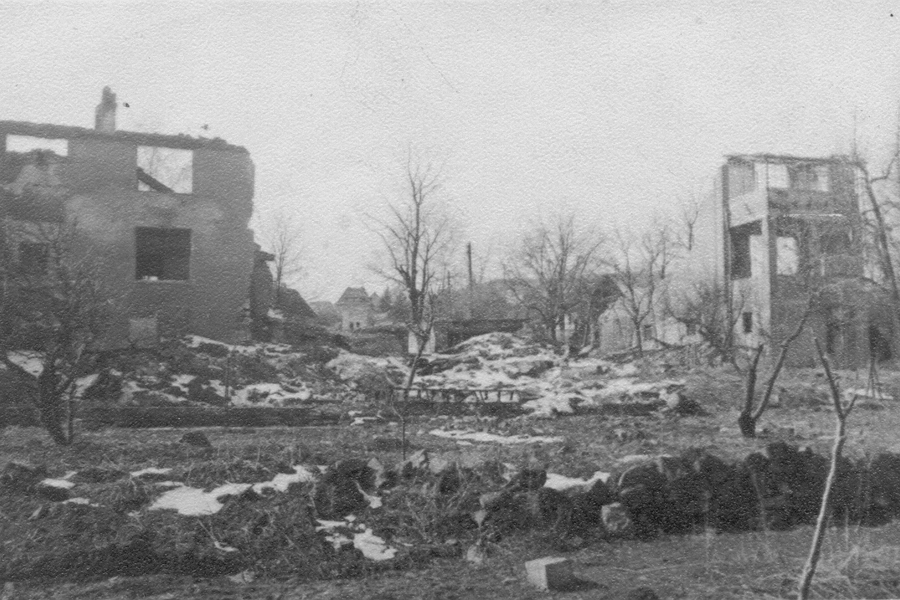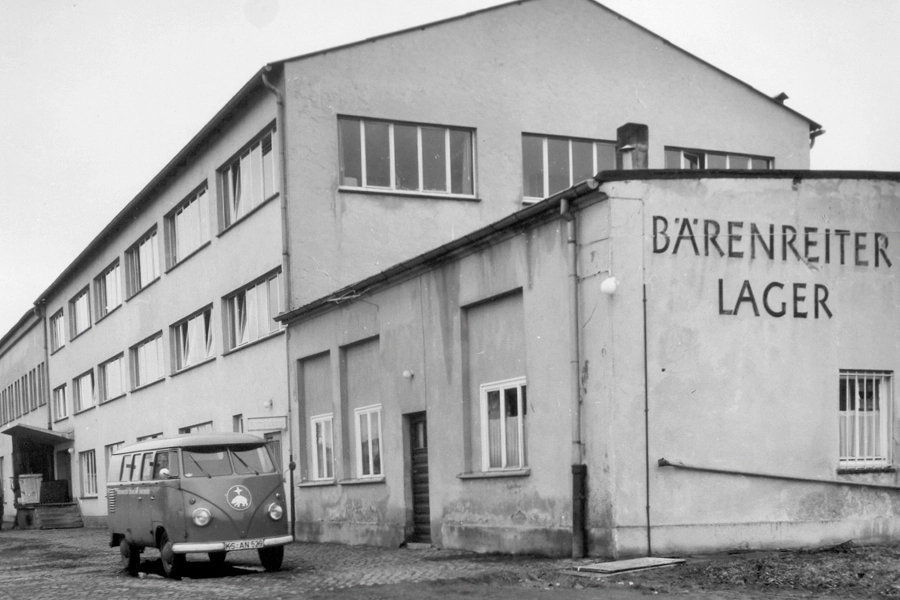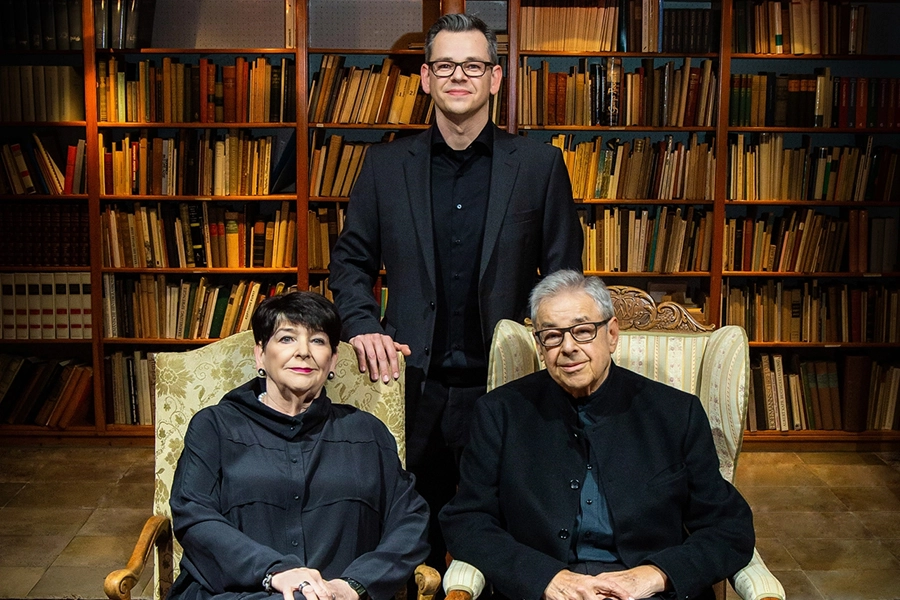
The Founding
A young man from Augsburg with a violin. He meets like-minded people at singing weeks and has an idea: Even before Karl Vötterle came of age he had the first song sheets printed, bound them at home and sold them from there. This was a turning point in his life and the start of the Bärenreiter publishing house.

The Early Years
It soon became clear that song sheets alone would not keep the publishing house afloat. And thus, editions of works by Lechner, Schütz, Bach and others soon appeared. Church music and books were added to the catalogue, and loyal employees were hired. By 1927, it was time to move the premises.

National Socialist Era
Conformity was also enforced regarding the singing movement, everything had to serve the Nazis. This was not an easy time for a publishing house whose owner allowed a clear idea without ideology. However, without compromise, Bärenreiter would have gone under. The closure of the publishing house was imminent – but was cleverly averted.

Postwar Period
The country lay in ruins, as did the publishing house. Initially rebuilding meant manual labour. Those who were alive and healthy tackled the task brick by brick, at first literally by reconstructing the company building, and then by resuming the work to further develop the publishing catalogue. The printing presses were soon up and running again.

The Publisher after 1945
The regained freedom enabled new perspectives and a view far beyond Germany. Large projects could be tackled with optimism. The company grew and became one of the few music publishers with a worldwide reputation. Expansion and two generational changes took place, but the course always remained clear.